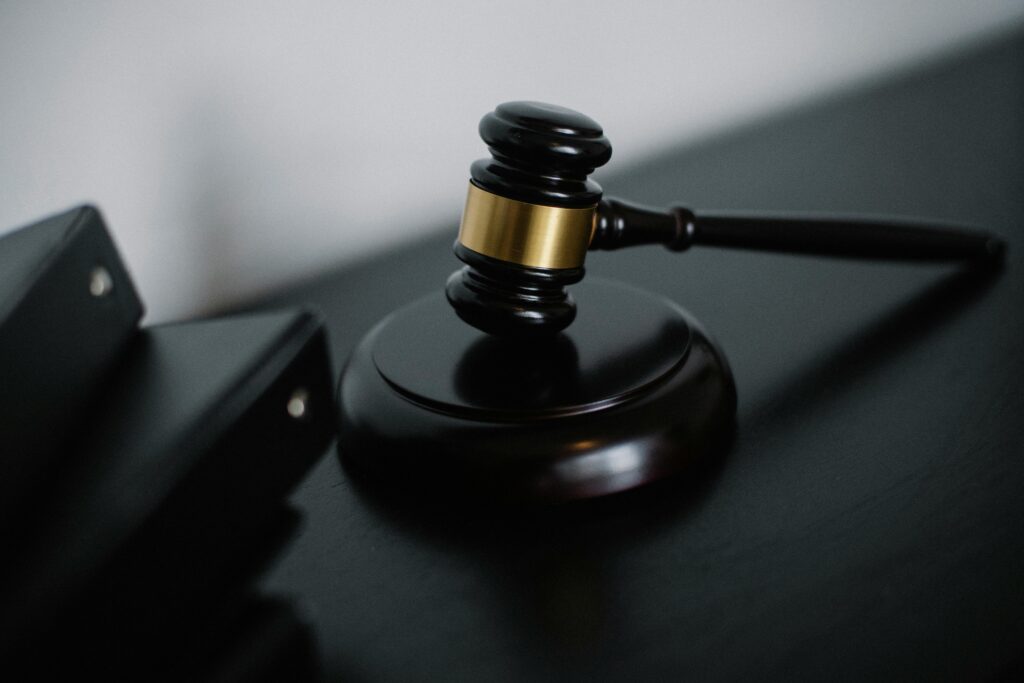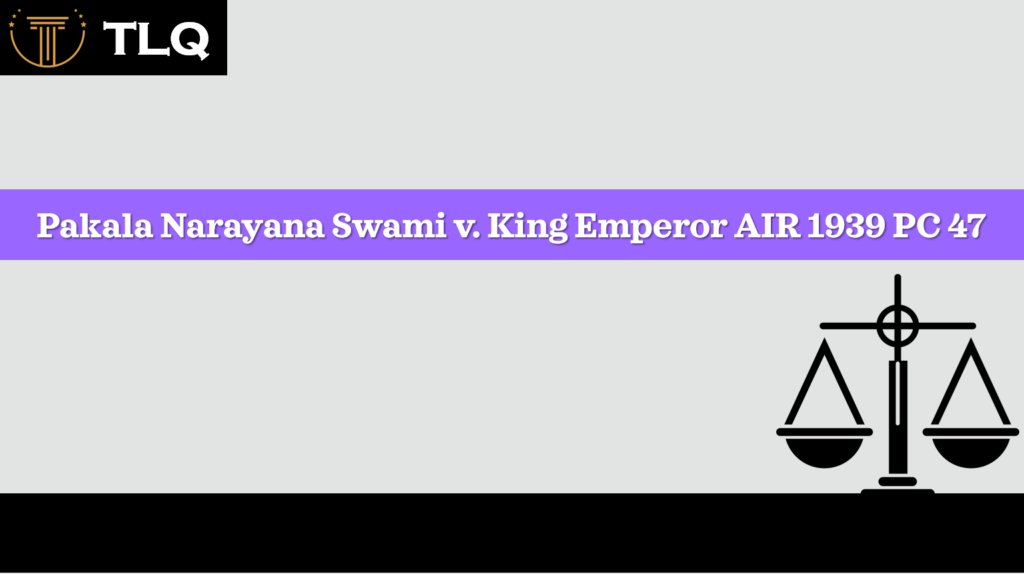Published on: 19th November 2025
Authored by: Sanskriti Upadhyay
Shambhunath Institute of Law, Prayagraj
Case name :Vihaan Kumar vs. the State of Haryana
Case Number Crl.A. No.:-000621-000621 – 2025
Diary Number: 43293/2024
Parties of the Case
Appellant: Vihaan Kumar
Respondent: State of Haryana
Advocates of parties
Appellant: Senior Advocate Kapil Sibal
Respondent: Senior Counsel Basant R.
Equivalent Citations: Special Leave Petition (Crl.) No. 13320 of 2024 Type of the Case: Special Leave Petition (Criminal)
Court: Supreme Court of India
Statutes, Provisions, Judgements Involved In the Case: Article 22(1) and 22(2) of the Constitution of India Section 50 of the Code of Criminal Procedure, 1973 (CrPC)Section 41 of the CrPC (now Section 35 of the Bharatiya Nagarik Suraksha Sanhita, 2023)Sections 409, 420, 467, 468, 471 read with Section 120-B of the Indian Penal Code (IPC)
Bench: Hon’ble Mr. Justice Abhay S. OkaHon’ble Mr. Justice Nongmeikapam Kotiswar Singh
Judgement Date: 7/02/2025
FACTS
The appellant, Vihaan Kumar, was arrested in connection with FIR No. 121/2023 dated 25 March 2023, registered under Sections 409, 420, 467, 468, 471 read with Section 120-B of the Indian Penal Code.
According to the appellant, the arrest occurred on 10 June 2024 at approximately 10:30 a.m. at his office in HUDA City Centre, Gurugram. He was then taken to DLF Police Station, Sector 29, Gurugram, and was produced before the Magistrate on 11 June 2024 at 3:30 p.m.
The appellant asserted that he was neither informed of the grounds of arrest nor produced within 24 hours, thus alleging violations of Article 22(1) and (2) of the Constitution and Section 50 and 57 CrPC.
The State, however, contended that the arrest took place at 6:00p.m. on 10 June 2024, implying compliance with the 24-hour production requirement.
Additionally, it was established through a Medical Superintendent’s affidavit that the appellant was handcuffed and chained to the hospital bed while under medical treatment at PGIMS, Rohtak.
The appellant persistently pleaded that he was never informed of the grounds of arrest-neither orally nor in writing. The police only claimed that his wife had been informed.
ISSUES RAISED
- Whether the appellant’s fundamental right under Article 22(1) of the Constitution was violated due to the failure to inform him of the grounds of arrest.
- Whether the alleged delay in production before the Magistrate (Article 22 (2) and Section 57 CrPC) also rendered the arrest illegal.
- Whether subsequent remand orders and filing of the charge sheet can cure the illegality of an arrest that was itself unconstitutional?
- Whether handcuffing and chaining the appellant while hospitalized constituted a violation of Article 21 (right to dignity and liberty).
LEGAL REASONING
Article 22 (1) as a Fundamental Guarantee: Article 22(1) clearly states that every individual who is arrested must be informed, “as soon as may be,” of the grounds of arrest. This is integral to the overarching right to liberty under Article 21.
Specific Duty of the Arresting Officer: Under Section 50 of the Code of Criminal Procedure (CrPC), or Section 47 of the Bharatiya Nagarik Suraksha Sanhita (BNSS), an arresting officer is required to furnish full particulars of the offence or grounds. Failure to follow this step is fatal to the arrest’s legality.
Non-Compliance Renders Arrest Illegal: Where courts find that the arrestee was not informed of the grounds of arrest in a language he understands, the entire process that follows the arrest-remand, cognizance, chargesheet-cannot salvage the constitutional violation.
Extended to Protective Measures:
The Court also linked the right to dignity under Article 21 to ensure that detainees or under trials are treated humanely and not subjected to handcuffing or chaining absent extraordinary reasons validated by law.
PRECEDENTS CITED
➢ PANKAJ BANSAL v. UNION OF INDIA (2024) 7 SCC 576:
The Court underscored that the grounds of arrest must be communicated to the accused in a meaningful way, preferably in writing, so that the accused can effectively exercise the right to legal counsel and challenge the arrest.
➢ PRABIR PURKAYASTHA v. STATE (NCT OF DELHI) (2024) 8 SCC 254:
Reiterated that if grounds of arrest are not conveyed properly or in a language the arrested person understands, the arrest is unconstitutional.
➢ HARIKISAN V. STATE OF MAHARASHTRA (1962 SCC ONLINE SC 117):
A Constitution Bench decision relating to preventive detention under Article 22(5). The Court noted that the language used in Articles 22 (1) and 22(5) is identical on the requirement of communicating grounds for arrest or detention.
LALLUBHAI JOGIBHAI PATEL V. UNION OF INDIA (1981) 2 SCC 427:
Highlighted that “communication” must be more than a mere formality; the person must effectively understand the grounds of detention or arrest.
FINDINGS
Violation of Article 22(1): The Court held that the right to be informed of the grounds of arrest is a mandatory constitutional safeguard. The burden lies on the police to prove compliance. In this case, the police failed to demonstrate that the appellant was informed-no written or oral communication was evidenced, and informing the appellant’s wife did not satisfy the constitutional mandate.
Effect of Non-Compliance: The Court reaffirmed that non-compliance with Article 22(1) not only violates the said Article but also violates Article 21, thereby vitiating the arrest and all subsequent remand orders. This principle is rooted in precedent from Pankaj Bansal v. Union of India and Prabir Purkayastha v. State (NCT of Delhi).
No Curative Effect of Charge Sheet or Remand: Filing of a charge sheet and orders of remand cannot validate an arrest that is per se unconstitutional. Constitutional safeguards cannot be overridden by procedural developments post facto.
Handcuffing and Chaining: The act of handcuffing and chaining the appellant to a hospital bed was held to be a gross violation of Article 21. The Court directed the State of Haryana to issue specific guidelines and departmental instructions to prevent such conduct in the future.
Directions Issued: The arrest was declared illegal and vitiated.
The appellant was directed to be forthwith released.
The State of Haryana was directed to ensure compliance with Article 22 in future arrests. Guidelines were ordered to prevent handcuffing and chaining of hospitalised detainees. A copy of the judgment was directed to be sent to the Home Secretary of Haryana.




